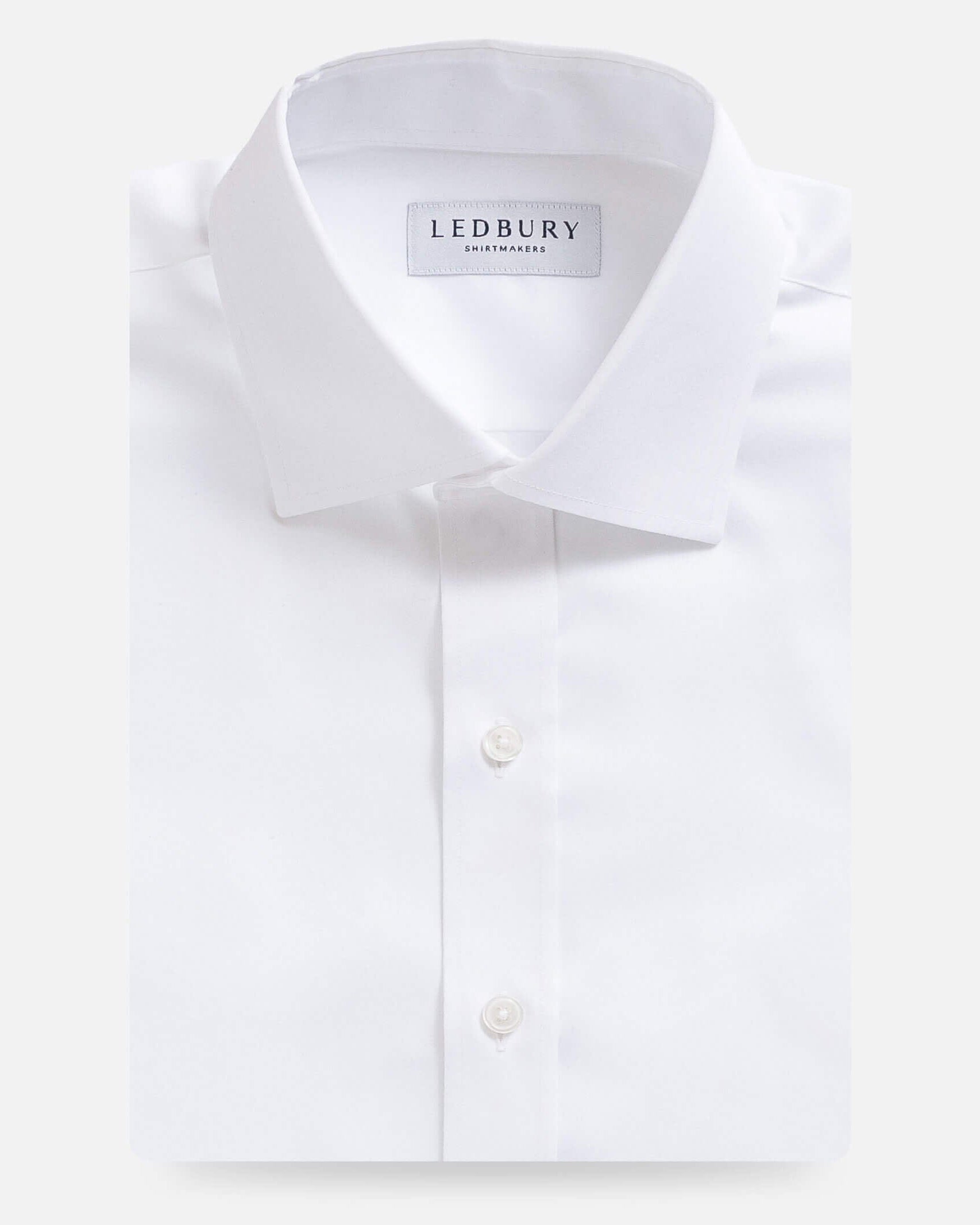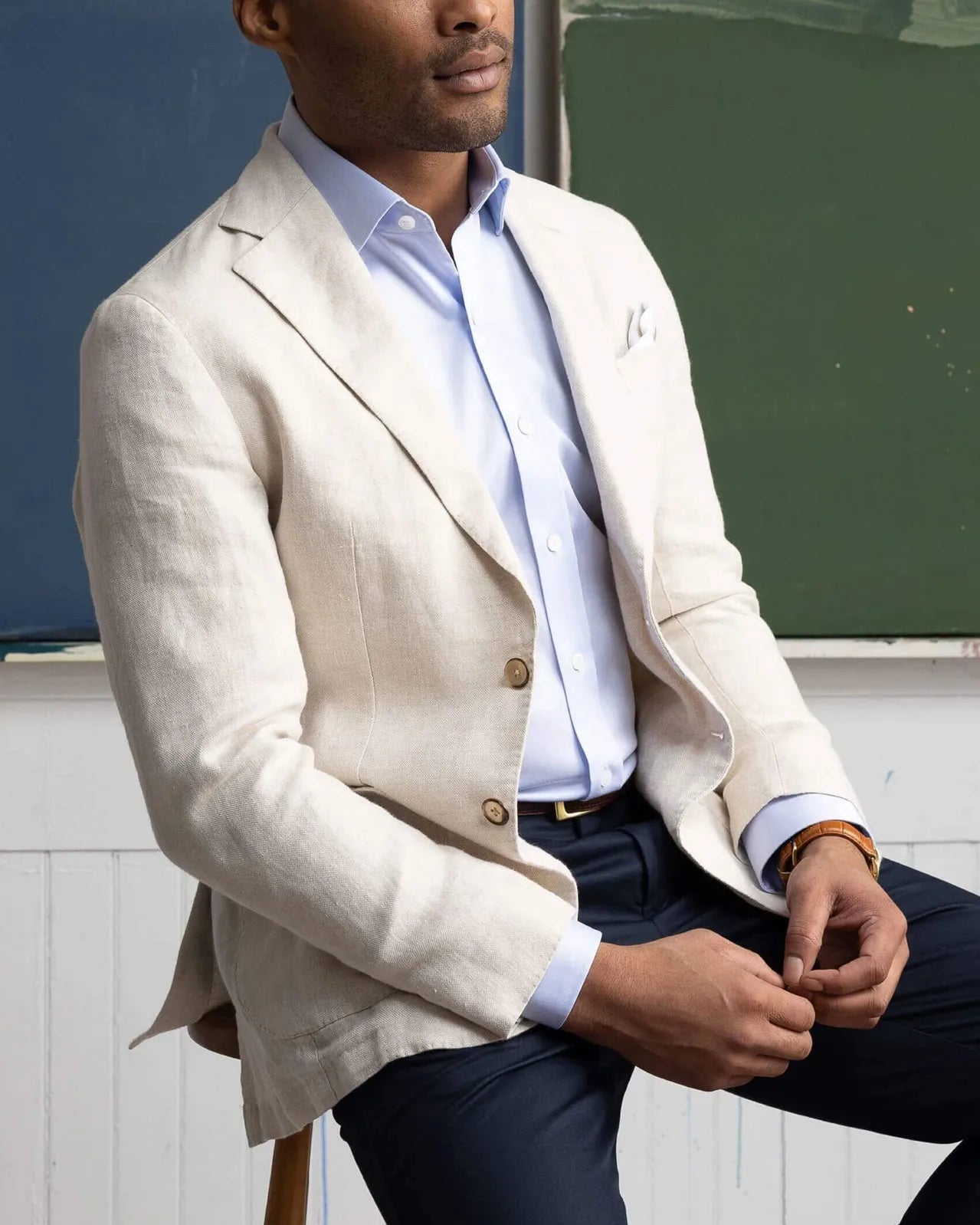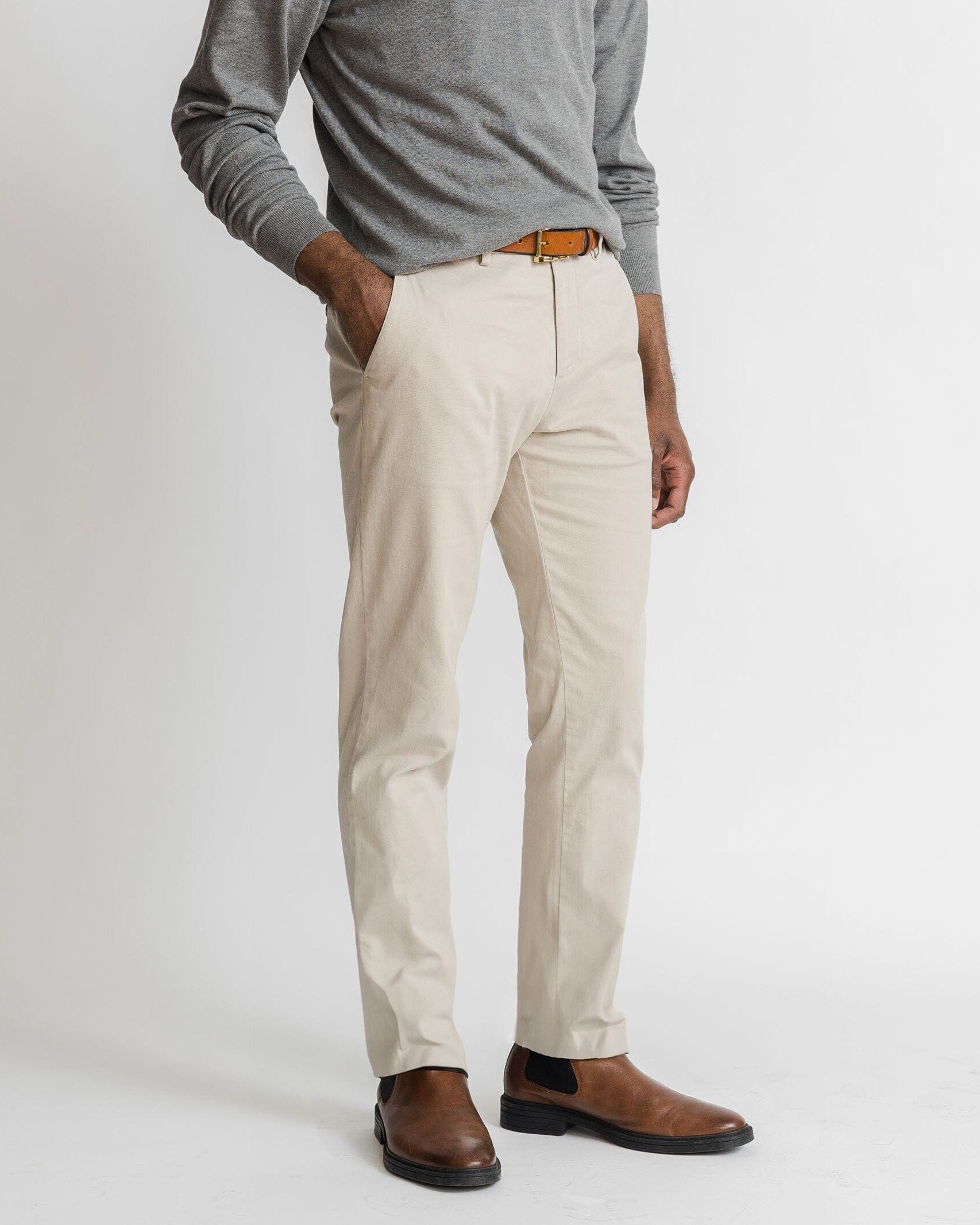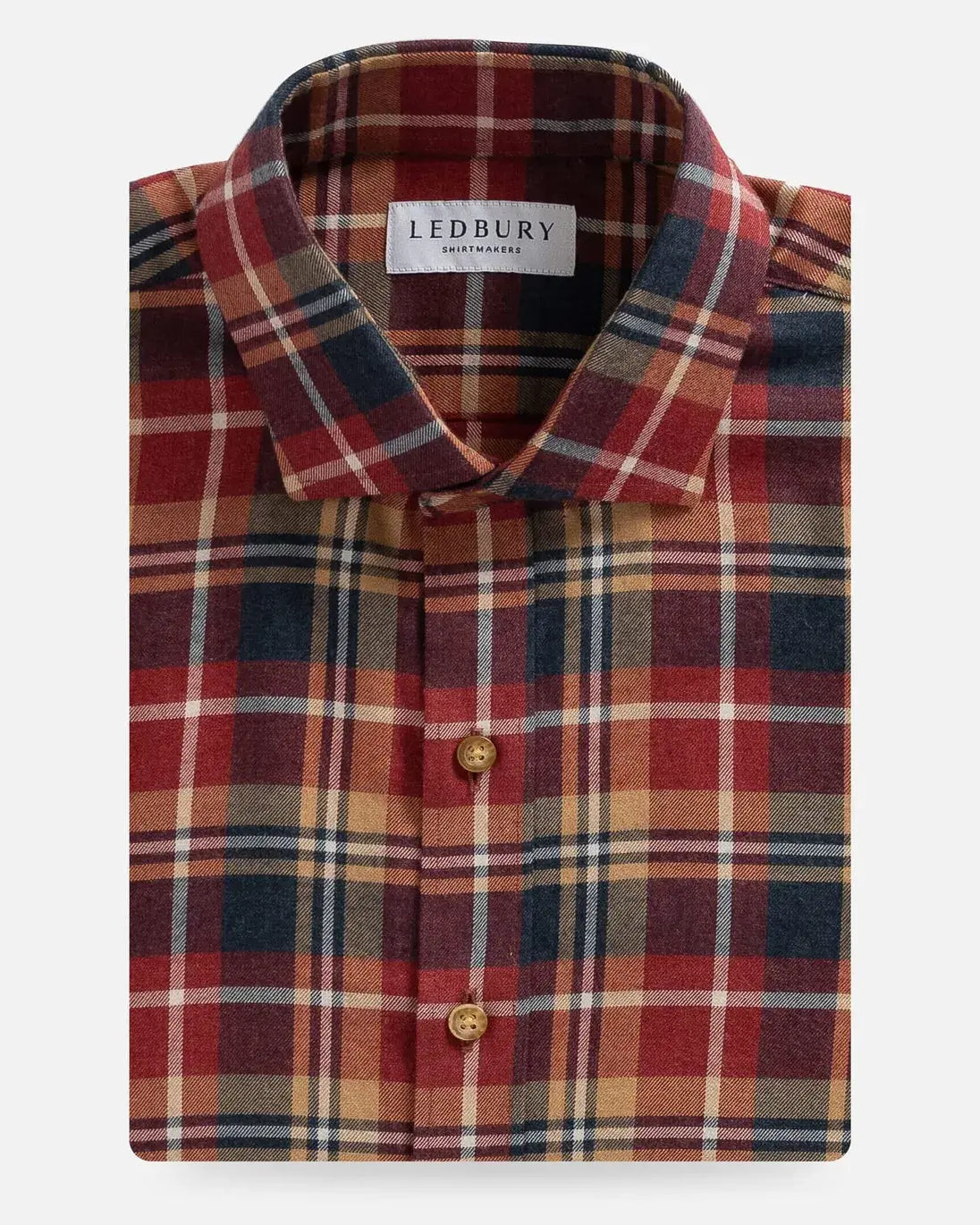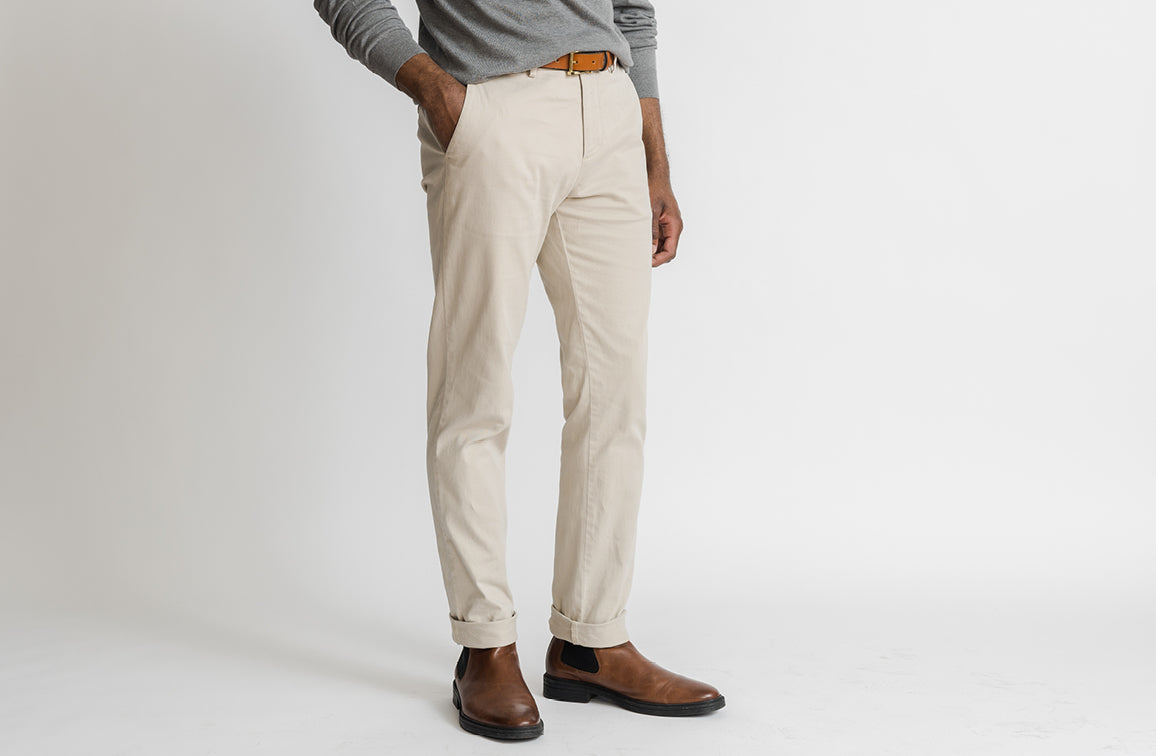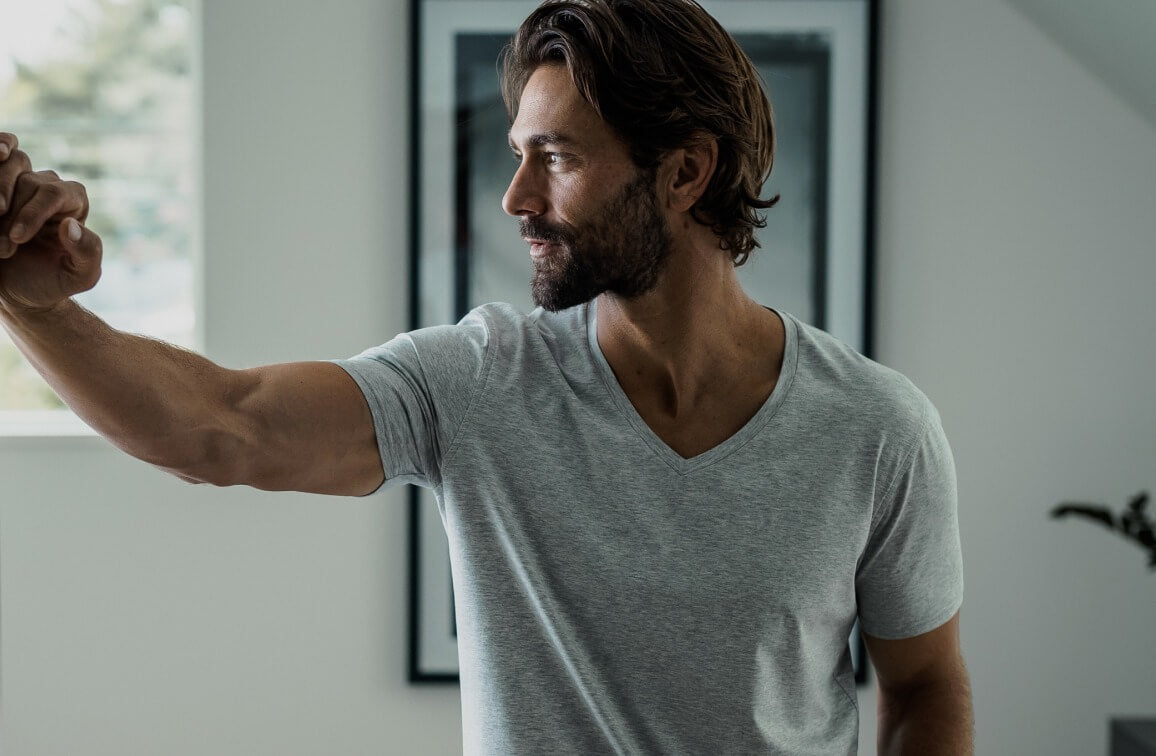







Virginia is home to a small but strong and growing surfing community. Home to the
East Coast Surfing Championships (ECSC), Virginia Beach's is, at times, its epicenter. On an early Friday morning, I left the office and headed east to the beach to catch up with a local craftsman: Austin Saunders. Austin operates a board shop where he crafts surfboards by hand from the highest quality materials. I caught up with Austin at his shop, just a few blocks away from the boardwalk. We talked about the craft of building high-quality boards and the surfing culture of the East Coast.
You started building boards almost by accident. Could you tell us a little more about how you got started?
I would beat up my boards pretty badly when I was younger, and I would take them to this local guy who would fix them up for me. He would butcher them and I started thinking that I could fix them a lot better than he could. I did that for a couple of years, and for my 16th birthday, I told my dad that I wanted to try to build a board. So we carved out a space in the garage, and I shaped my first board.
After I finished the first board, I was super proud. I took it to the guy who had been fixing my boards to take a look at it. He looked at it and said, “That thing is a piece of trash and will probably never float.” So I decided to do another one, and do a better job. The next one I built was for my dad. Then from there, I started building boards for friends and friends-of-friends. And before I knew it, I started a business and didn’t realize it.
It was a very organic growth. I kept building boards, then in 2006, I brought another surfboard company that was also a glass house where shapers would bring their boards and we would finish them. We had 9 – 10 employees but it really wasn’t me. When you get a bunch of employees like that, you tend to become a baby sitter versus a board builder. I was the guy managing and not the guy building the boards. I sold the glass house two years later, and we ended up opening the surf shop exclusively selling our own boards. So now we have our factory and the retail shop. It’s just my uncle, me, and whenever we can convince him, my dad to work with us at the factory building boards.
It seems like there was quite a bit of trial and error in your evolution as a shaper. Was there any particular moment when you felt as if you had caught your stride as a board builder? Could you see yourself becoming more and more confident in your field?
There were several points where I really thought I had it under wraps, but as you advance, you realize that you didn’t have it as much as you thought you did. The point that it really hit was when I started getting a ton of board builders that have been around since forever, calling and e-mailing how to do stuff. That was the first time when I realized that we were getting it together.
It’s very difficult for an East Coast board builder to get recognition because most of the attention goes to shapers from the West Coast and Hawaii. It took us a little bit longer to get traction in our hometown, but we started selling all through New England. Surfers would see the boards and the boards speak for themselves. If you appreciate craftsmanship and hand-built boards, it’s hard not to appreciate them. It’s a lot of work and a lot of time goes into every single one that we put out.
You’re relatively young for a board builder. The colors and shapes of your boards are a bit of a departure from the mainstream. Have you learned anything from the older shapers, or do you offer a completely new perspective to board making?
The guys who were doing it originally, they set the style of the boards that I like. I’ve always gravitated towards the boards that were built between 1966 and 1968. Then I just took it my way with brighter colors and making boards that really pop. I try to be as unique as I can with each one. No one wants to be the guy that paddles out and sees someone with the same board.
What does craftsmanship mean to you? How do you interpret this idea in your work?
The starting point of all good things is the foundation. For board building, that means using all good materials. The materials that we use are easily twice as expensive as every other board builders that I know. But, if you start with good stuff, you’re going to end with good stuff. That was one of the main things that I started pushing right when I started building boards. I wanted to build boards that last and are very durable. The only way to do that was paying for those materials. That’s part of the craftsmanship.
There are a lot of board builders that can build really great boards but they don’t spend the time. That’s the thing. Time to me is no issue. Our typical board takes anywhere from 20-40 hours of work to complete. If it’s not right, we have to get it right. If it takes three more hours, then it takes three more hours. That’s probably the most important thing to craftsmanship, taking the time to make every detail correct.
Being a surfer yourself, you have a more inherent understanding of board design and the needs of your customers. How does the surf in Virginia Beach compare to other portions of the East Coast? How would you describe the surfing community here?
We only have 13 miles of coastline in Virginia. Even though we only have that little amount here, our surfing culture is strong. Virginia is tough because there are only one or two wind directions that work. Everything else gets choppy. If the waves are good, you’ll see a lot of people out there. It’s surprising how much surfing culture is here, as well as the rest of the East Coast. The waves are really great in North Carolina at Cape Hatteras and at the Outer Banks.
What pointers would you give any aspiring entrepreneur?
The main thing that you should do is to find something that you like to do, because you’re going to do it all day, every day. If you’re going to be successful, you have to give it everything. If you’re passionate about it, you will be successful because there’s no other option but to succeed. That was the big thing for me. Even if I didn’t build surfboards for people anymore, I’d still be building them for me. No matter what, it’s a lifetime thing, even if it was a career that ended, I’d still be doing it.
What’s on the horizon for you and your company?
We just launched our online store so we’re hoping to expand that and get more boards and products up there. That’s the main push we’re doing right now. I’m hoping to break ground on our new factory this upcoming winter. It’s not so much bigger but better. It will be more set up in the way that I want it set up. When we move to our newest factory, we were kind of in a rush, so I couldn’t set it up the way that I wanted it to. That was 5 years ago. I can’t wait to get in and get the final setup exactly the way I want it. I’m excited.







 Virginia is home to a small but strong and growing surfing community. Home to the East Coast Surfing Championships (ECSC), Virginia Beach's is, at times, its epicenter. On an early Friday morning, I left the office and headed east to the beach to catch up with a local craftsman: Austin Saunders. Austin operates a board shop where he crafts surfboards by hand from the highest quality materials. I caught up with Austin at his shop, just a few blocks away from the boardwalk. We talked about the craft of building high-quality boards and the surfing culture of the East Coast.
You started building boards almost by accident. Could you tell us a little more about how you got started?
I would beat up my boards pretty badly when I was younger, and I would take them to this local guy who would fix them up for me. He would butcher them and I started thinking that I could fix them a lot better than he could. I did that for a couple of years, and for my 16th birthday, I told my dad that I wanted to try to build a board. So we carved out a space in the garage, and I shaped my first board.
After I finished the first board, I was super proud. I took it to the guy who had been fixing my boards to take a look at it. He looked at it and said, “That thing is a piece of trash and will probably never float.” So I decided to do another one, and do a better job. The next one I built was for my dad. Then from there, I started building boards for friends and friends-of-friends. And before I knew it, I started a business and didn’t realize it.
It was a very organic growth. I kept building boards, then in 2006, I brought another surfboard company that was also a glass house where shapers would bring their boards and we would finish them. We had 9 – 10 employees but it really wasn’t me. When you get a bunch of employees like that, you tend to become a baby sitter versus a board builder. I was the guy managing and not the guy building the boards. I sold the glass house two years later, and we ended up opening the surf shop exclusively selling our own boards. So now we have our factory and the retail shop. It’s just my uncle, me, and whenever we can convince him, my dad to work with us at the factory building boards.
It seems like there was quite a bit of trial and error in your evolution as a shaper. Was there any particular moment when you felt as if you had caught your stride as a board builder? Could you see yourself becoming more and more confident in your field?
There were several points where I really thought I had it under wraps, but as you advance, you realize that you didn’t have it as much as you thought you did. The point that it really hit was when I started getting a ton of board builders that have been around since forever, calling and e-mailing how to do stuff. That was the first time when I realized that we were getting it together.
It’s very difficult for an East Coast board builder to get recognition because most of the attention goes to shapers from the West Coast and Hawaii. It took us a little bit longer to get traction in our hometown, but we started selling all through New England. Surfers would see the boards and the boards speak for themselves. If you appreciate craftsmanship and hand-built boards, it’s hard not to appreciate them. It’s a lot of work and a lot of time goes into every single one that we put out.
You’re relatively young for a board builder. The colors and shapes of your boards are a bit of a departure from the mainstream. Have you learned anything from the older shapers, or do you offer a completely new perspective to board making?
The guys who were doing it originally, they set the style of the boards that I like. I’ve always gravitated towards the boards that were built between 1966 and 1968. Then I just took it my way with brighter colors and making boards that really pop. I try to be as unique as I can with each one. No one wants to be the guy that paddles out and sees someone with the same board.
What does craftsmanship mean to you? How do you interpret this idea in your work?
The starting point of all good things is the foundation. For board building, that means using all good materials. The materials that we use are easily twice as expensive as every other board builders that I know. But, if you start with good stuff, you’re going to end with good stuff. That was one of the main things that I started pushing right when I started building boards. I wanted to build boards that last and are very durable. The only way to do that was paying for those materials. That’s part of the craftsmanship.
There are a lot of board builders that can build really great boards but they don’t spend the time. That’s the thing. Time to me is no issue. Our typical board takes anywhere from 20-40 hours of work to complete. If it’s not right, we have to get it right. If it takes three more hours, then it takes three more hours. That’s probably the most important thing to craftsmanship, taking the time to make every detail correct.
Being a surfer yourself, you have a more inherent understanding of board design and the needs of your customers. How does the surf in Virginia Beach compare to other portions of the East Coast? How would you describe the surfing community here?
We only have 13 miles of coastline in Virginia. Even though we only have that little amount here, our surfing culture is strong. Virginia is tough because there are only one or two wind directions that work. Everything else gets choppy. If the waves are good, you’ll see a lot of people out there. It’s surprising how much surfing culture is here, as well as the rest of the East Coast. The waves are really great in North Carolina at Cape Hatteras and at the Outer Banks.
What pointers would you give any aspiring entrepreneur?
The main thing that you should do is to find something that you like to do, because you’re going to do it all day, every day. If you’re going to be successful, you have to give it everything. If you’re passionate about it, you will be successful because there’s no other option but to succeed. That was the big thing for me. Even if I didn’t build surfboards for people anymore, I’d still be building them for me. No matter what, it’s a lifetime thing, even if it was a career that ended, I’d still be doing it.
What’s on the horizon for you and your company?
We just launched our online store so we’re hoping to expand that and get more boards and products up there. That’s the main push we’re doing right now. I’m hoping to break ground on our new factory this upcoming winter. It’s not so much bigger but better. It will be more set up in the way that I want it set up. When we move to our newest factory, we were kind of in a rush, so I couldn’t set it up the way that I wanted it to. That was 5 years ago. I can’t wait to get in and get the final setup exactly the way I want it. I’m excited.
Virginia is home to a small but strong and growing surfing community. Home to the East Coast Surfing Championships (ECSC), Virginia Beach's is, at times, its epicenter. On an early Friday morning, I left the office and headed east to the beach to catch up with a local craftsman: Austin Saunders. Austin operates a board shop where he crafts surfboards by hand from the highest quality materials. I caught up with Austin at his shop, just a few blocks away from the boardwalk. We talked about the craft of building high-quality boards and the surfing culture of the East Coast.
You started building boards almost by accident. Could you tell us a little more about how you got started?
I would beat up my boards pretty badly when I was younger, and I would take them to this local guy who would fix them up for me. He would butcher them and I started thinking that I could fix them a lot better than he could. I did that for a couple of years, and for my 16th birthday, I told my dad that I wanted to try to build a board. So we carved out a space in the garage, and I shaped my first board.
After I finished the first board, I was super proud. I took it to the guy who had been fixing my boards to take a look at it. He looked at it and said, “That thing is a piece of trash and will probably never float.” So I decided to do another one, and do a better job. The next one I built was for my dad. Then from there, I started building boards for friends and friends-of-friends. And before I knew it, I started a business and didn’t realize it.
It was a very organic growth. I kept building boards, then in 2006, I brought another surfboard company that was also a glass house where shapers would bring their boards and we would finish them. We had 9 – 10 employees but it really wasn’t me. When you get a bunch of employees like that, you tend to become a baby sitter versus a board builder. I was the guy managing and not the guy building the boards. I sold the glass house two years later, and we ended up opening the surf shop exclusively selling our own boards. So now we have our factory and the retail shop. It’s just my uncle, me, and whenever we can convince him, my dad to work with us at the factory building boards.
It seems like there was quite a bit of trial and error in your evolution as a shaper. Was there any particular moment when you felt as if you had caught your stride as a board builder? Could you see yourself becoming more and more confident in your field?
There were several points where I really thought I had it under wraps, but as you advance, you realize that you didn’t have it as much as you thought you did. The point that it really hit was when I started getting a ton of board builders that have been around since forever, calling and e-mailing how to do stuff. That was the first time when I realized that we were getting it together.
It’s very difficult for an East Coast board builder to get recognition because most of the attention goes to shapers from the West Coast and Hawaii. It took us a little bit longer to get traction in our hometown, but we started selling all through New England. Surfers would see the boards and the boards speak for themselves. If you appreciate craftsmanship and hand-built boards, it’s hard not to appreciate them. It’s a lot of work and a lot of time goes into every single one that we put out.
You’re relatively young for a board builder. The colors and shapes of your boards are a bit of a departure from the mainstream. Have you learned anything from the older shapers, or do you offer a completely new perspective to board making?
The guys who were doing it originally, they set the style of the boards that I like. I’ve always gravitated towards the boards that were built between 1966 and 1968. Then I just took it my way with brighter colors and making boards that really pop. I try to be as unique as I can with each one. No one wants to be the guy that paddles out and sees someone with the same board.
What does craftsmanship mean to you? How do you interpret this idea in your work?
The starting point of all good things is the foundation. For board building, that means using all good materials. The materials that we use are easily twice as expensive as every other board builders that I know. But, if you start with good stuff, you’re going to end with good stuff. That was one of the main things that I started pushing right when I started building boards. I wanted to build boards that last and are very durable. The only way to do that was paying for those materials. That’s part of the craftsmanship.
There are a lot of board builders that can build really great boards but they don’t spend the time. That’s the thing. Time to me is no issue. Our typical board takes anywhere from 20-40 hours of work to complete. If it’s not right, we have to get it right. If it takes three more hours, then it takes three more hours. That’s probably the most important thing to craftsmanship, taking the time to make every detail correct.
Being a surfer yourself, you have a more inherent understanding of board design and the needs of your customers. How does the surf in Virginia Beach compare to other portions of the East Coast? How would you describe the surfing community here?
We only have 13 miles of coastline in Virginia. Even though we only have that little amount here, our surfing culture is strong. Virginia is tough because there are only one or two wind directions that work. Everything else gets choppy. If the waves are good, you’ll see a lot of people out there. It’s surprising how much surfing culture is here, as well as the rest of the East Coast. The waves are really great in North Carolina at Cape Hatteras and at the Outer Banks.
What pointers would you give any aspiring entrepreneur?
The main thing that you should do is to find something that you like to do, because you’re going to do it all day, every day. If you’re going to be successful, you have to give it everything. If you’re passionate about it, you will be successful because there’s no other option but to succeed. That was the big thing for me. Even if I didn’t build surfboards for people anymore, I’d still be building them for me. No matter what, it’s a lifetime thing, even if it was a career that ended, I’d still be doing it.
What’s on the horizon for you and your company?
We just launched our online store so we’re hoping to expand that and get more boards and products up there. That’s the main push we’re doing right now. I’m hoping to break ground on our new factory this upcoming winter. It’s not so much bigger but better. It will be more set up in the way that I want it set up. When we move to our newest factory, we were kind of in a rush, so I couldn’t set it up the way that I wanted it to. That was 5 years ago. I can’t wait to get in and get the final setup exactly the way I want it. I’m excited.

